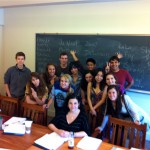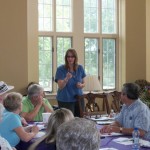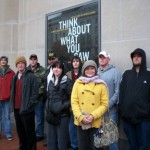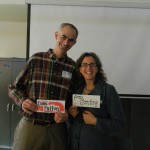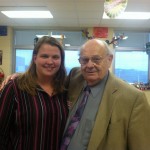I think I am Margaret – reflections on “On Austrian Soil”
Forums › 2023 Summer Seminar › On Austrian Soil 2023 Summer Seminar Responses: due MAY 30 › I think I am Margaret – reflections on “On Austrian Soil”
-
AuthorPosts
-
-
June 20, 2023 at 1:06 pm #31894
This is my first time reading anything like “On Austrian Soil”. As a historian, I have tended to focus on historical (cultural, social) approaches to the Holocaust and am only now turning more to the pedagogy and experiences teaching about the Holocaust. It was an honest account that drew back the curtain of who we are as professional educators to reveal the very personal, human experiences behind the title of “professor”. Steeped in a field that tends to believe itself to be objective – and operating in a school community where teachers are more or less required to be 100% neutral so as not to challenge or offend – I appreciated Perl’s unabashedly subjective reckoning of her journey with teaching, Austria(ns), Judaism, writing, and the Holocaust.
Although “silence” plays a major theme in “On Austrian Soil”, national histories (Poland, Austria, Hungary), and other memoirs written by second generation authors (Maus, After Long Silence), I was most struck by, and relate to, Margaret’s refusal to be silent. Her willingness to confront and struggle with Austria’s relationship to and responsibility for the Holocaust, compounded with her frustration that her peers and in-laws were unwilling to so, felt deeply familiar.
I teach about “hard histories” – racism, slavery, nativism, genocide, homophobia, oppressive societies and governments, power – because I want to better understand how humans work and so that we can “know better, do better”. In my US history classes, about 1/2 of my students are willing to dig in, confront, consider, evaluate. The other half walk into my class – the community having made assumptions about me because I’m from California, female, Jewish, and a PhD – echoing Ingrid’s lines from p. 105, “What right do you have to come here and ask us questions about our past? You came here with the desire to gain answers to your personal problems. I am sorry to say, but to my mind this is unprofessional.” In the subsequent chapters, Perl aptly demonstrates how continued open and honest dialogue with Ingrid allowed them to work together to find deeper understanding. Although I have had similarly positive experiences working with students in my classes, I have found this sort of productive dialogue to be lost in the social media age. I am left wondering how we continue to do this work while also being attacked and challenged in social media spaces that discourage dialogue.
-
-
AuthorPosts
- You must be logged in to reply to this topic.
Recent Replies
Recently Active
-
Active 1 day, 10 hours ago
-
Active 1 day, 14 hours ago
-
Active 2 days, 11 hours ago
-
Active 3 days, 6 hours ago
-
Active 3 days, 11 hours ago
- View All Members

